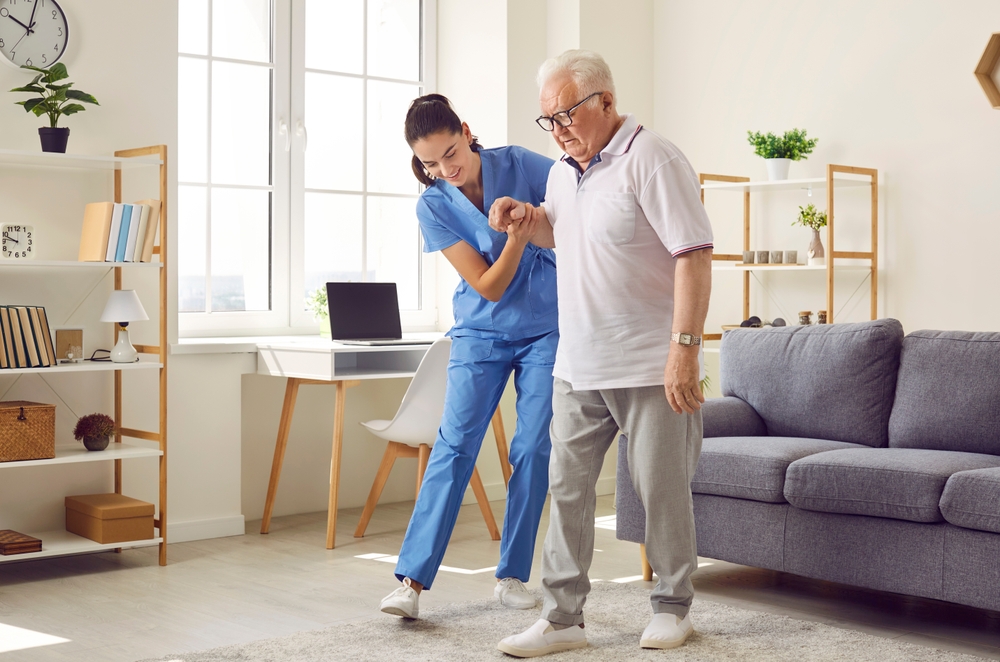Understanding the Stroke Recovery Journey
Recovering from a stroke can be a long and challenging process, but with the right support, it can also be a time of healing and growth. A stroke occurs when blood flow to the brain is disrupted, leading to damage that affects mobility, speech, and overall functioning. For seniors, this can be especially overwhelming, but having caring and informed people around makes a huge difference.
Learn About the Effects of Stroke
Before helping a senior recover, it’s important to understand the effects of a stroke. These can range from mild to severe and may include paralysis on one side of the body, trouble speaking or understanding, memory loss, and difficulty with daily tasks. Each person’s recovery is unique, depending on the type and severity of the stroke.
Understanding these effects will help you provide the right kind of assistance while being patient with the process.
Encourage Regular Medical Check-Ups
Medical follow-ups are essential for stroke recovery. These appointments allow healthcare professionals to monitor progress and adjust treatment plans as needed. Encourage the senior to attend every appointment and keep track of their medications. If possible, accompany them to their visits to better understand the doctor’s recommendations and ask any questions about their recovery plan.
Focus on Physical Rehabilitation
Physical therapy plays a crucial role in regaining strength and mobility. Help the senior follow through with prescribed exercises, which might include stretching, balance training, and walking. If they’re working with a physical therapist, ensure they stick to the scheduled sessions and practice exercises at home.
Creating a safe environment for movement is also vital. Remove obstacles like loose rugs or furniture that might cause falls and consider installing grab bars or rails where needed.
Support Speech and Cognitive Recovery
Stroke often affects speech and memory, making communication and daily tasks difficult. Speech therapy can help seniors relearn how to talk, read, or write. You can support this by practicing speech exercises at home or encouraging simple activities like reading aloud or playing word games.
Cognitive exercises, like solving puzzles or memory games, can also stimulate the brain and enhance recovery. Patience is key during these activities, as progress may be slow but steady.
Promote Healthy Eating and Hydration
Nutrition plays a significant role in recovery. A balanced diet rich in fruits, vegetables, whole grains, and lean proteins can help improve overall health and reduce the risk of another stroke. Encourage small, frequent meals if they find larger ones overwhelming, and make sure they stay hydrated.
If swallowing is an issue, consult a speech therapist or dietitian for guidance on safe foods and meal preparation techniques.
Address Emotional Well-Being
Recovering from a stroke can take an emotional toll. Seniors might feel frustrated, depressed, or anxious about their progress. Listening to their concerns and providing reassurance can make a big difference.
Encourage activities that bring joy and relaxation, like listening to music, gardening, or spending time with loved ones. Joining a support group can also be helpful, as it provides an opportunity to connect with others facing similar challenges.
Adapt Daily Activities
Simple daily tasks like dressing, cooking, or bathing can become daunting after a stroke. Help them maintain independence by adapting these activities to their current abilities. For instance, use clothing with easy closures, or provide tools like adaptive utensils or shower chairs.
Pacing activities and including rest breaks are equally important. Overexertion can lead to fatigue, so encourage them to listen to their body and take things one step at a time.
Foster a Positive and Encouraging Environment
A supportive environment is crucial for recovery. Celebrate small victories and remind the senior that progress, no matter how slow, is still progress. Avoid comparing their current abilities to their pre-stroke condition, as this can lead to unnecessary frustration.
Stay positive and focus on what they can do, rather than what they can’t. Your encouragement will boost their confidence and motivation.
Educate Yourself on Stroke Warning Signs
Even during recovery, the risk of another stroke remains. Educate yourself on warning signs such as sudden numbness, confusion, trouble speaking, or loss of balance. Knowing these signs can help you act quickly in an emergency.
The Role of Caregivers in Stroke Recovery
Being a caregiver is a demanding role, so don’t forget to take care of yourself too. Seek help when needed, whether it’s from other family members or professional caregivers. Managing your own stress ensures you can continue to provide the best support possible.
Conclusion
Supporting a senior through stroke recovery requires patience, understanding, and commitment. By focusing on physical, emotional, and cognitive rehabilitation, and creating a safe and encouraging environment, you can help them regain their independence and quality of life.
Every small step forward is a step toward a brighter future. Remember, recovery is not a race but a journey, and your support makes all the difference along the way.


